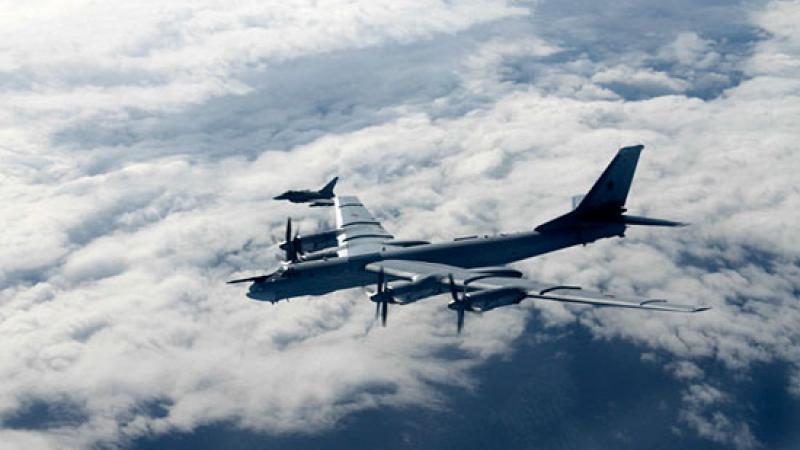Kidnap, skyjack, and murder: How Belarus and other repressive regimes hunt down dissident exiles
"Transnational repression" has become "a normal and institutionalized practice for dozens of countries that seek to control their citizens abroad," according to Freedom House.
The arrest of a dissident Belarusian journalist after a dramatic forced landing in Minsk is the latest incident in an alarming trend of "transnational repression" against exiles, according to human rights advocates.
"What appear to be isolated incidents when viewed separately — an assassination here, a kidnapping there — in fact form a constant threat across the world," said human rights watchdog group Freedom House in a report released earlier this year.
The repressive actions, the organization said, have become normalized. "Transnational repression is no longer an exceptional tool," according to the report, "but a normal and institutionalized practice for dozens of countries that seek to control their citizens abroad."
The latest incident involves 26-year-old Belarusian journalist Roman Protasevich, who was arrested on Sunday after being pulled off a civilian Irish airliner during an emergency stop in Belarus.
Protasevich was aboard the Ryanair plane flying from Athens to Vilnius. While the plane transited Belarusian air space, local ground controllers told pilots that a bomb was reported on the plane, and that it must land in Minsk. To underscore the order, Belarusian authorities dispatched a Soviet-designed MiG-29 fighter jet to escort the unarmed and much slower Irish plane. On the ground, no bomb was found — and the journalist was arrested.
The move brought swift condemnation from Washington, D.C.
"This shocking act perpetrated by the Lukashenka regime endangered the lives of more than 120 passengers, including U.S. citizens," Secretary of State Antony Blinken said in a statement demanding that Protasevich be released. "Initial reports suggesting the involvement of the Belarusian security services and the use of Belarusian military aircraft to escort the plane are deeply concerning and require full investigation."
A cursory look, though, would show that the move by Belarus was an example of an increasingly common practice, observers noted.
Over the past decades, authoritarianism has been on the rise, according to Stanford Law School's Allen Weiner, who cautioned that one breach of international protocol would follow another. "The concern is that if those rules are not abided by or there don't appear to be costs for disregarding those rules, then other people will decide, well, maybe I will find it to be convenient to violate the rules," he said in an interview.
The phenomenon is already well-advanced, according to Freedom House.
"Around the globe, states are employing a diverse and aggressive toolbox of tactics to control their citizens, or sometimes even non-citizens, abroad," the group wrote in its report, titled "Out of Sight, Not Out of Reach: The Global Scale and Scope of Transnational Repression." Repeat-offense transnational oppressors include China, Rwanda, Russia, Iran, Saudi Arabia, and Turkey.
"A surprisingly common tactic is assassination," the report's authors wrote.
The victims are targeted in an array of countries. Exiled Russian intelligence officer Alexander Litvinenko was killed in 2006 by radiation poisoning while living in London. Saudi dissident Jamal Khashoggi in 2008 was murdered and dismembered while visiting his country's consulate in Istanbul.
The most sophisticated perpetrator is China, wrote the report's authors, who said that the regime there has launched an "unparalleled" campaign of transnational repression.
The repressors' toolbox includes working through other countries' legal and political systems, prompting foreign governments to detain and deport dissidents.
Russia in particular uses Interpol Red Notices as a way to hunt for targets living abroad. A search by Just the News showed, for example, that out of the 7,645 active Interpol Red Notice arrest warrants, nearly 3,000 were issued by Russia. By contrast, 312 were issued by the United States, and 53 by Canada.
When Belarus went after Protasevich, "they reached into the skies to take somebody," said University of Southern California Professor Robert English, who studies central Europe. The act was "beyond the pale," he said.
In light of what happened to Protasevich, other exiled Belarusian activists have said they do not feel safe — a sentiment that resonates throughout the European Union.
"Ordinary citizens' lives were in danger," said Irish Minister for European Affairs Thomas Byrne in a Monday interview. "This is wrong, it's illegal, and quite frankly it could happen to any of us, so we cannot allow this to happen anywhere in the world."
















